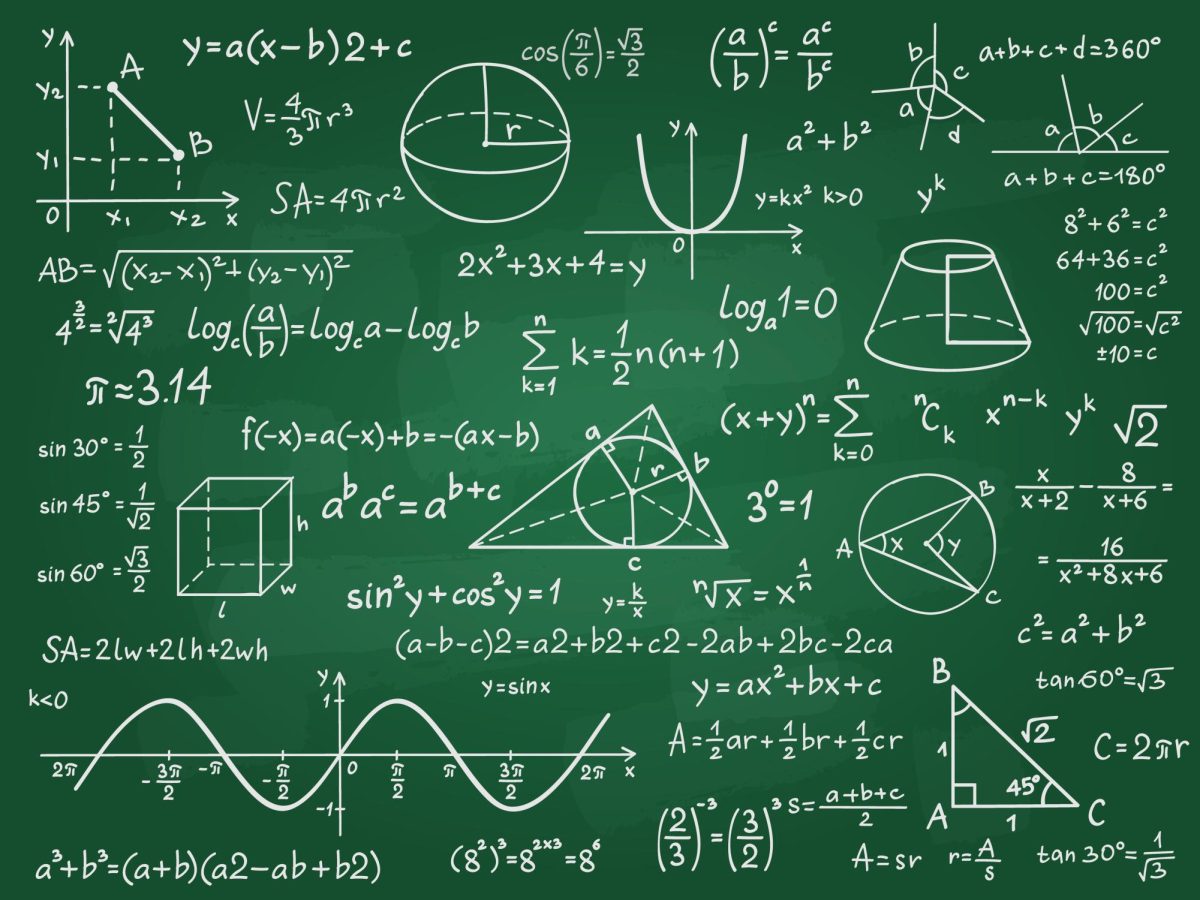Knowing basic math—like counting change and adding up the number of apples you need to buy—is essential for getting through daily life, but is it valuable to learn math to the extent that we learn it in high school?
The answer is complicated.
Math is intricately intertwined with all aspects of life—it’s the very core of how the world works. Nature has it figured out: specific ratios are required to make chemical reactions occur and Fibonacci spirals are found in the succulents sitting on the ledge of your window. But we’re talking about integrals and polar graphs. Considering that not everyone turns to a STEM-based career, teaching high-level math to all high school students seems unnecessary.
Greeley’s all-encompassing range of math courses addresses this issue. The varying levels of mathematics allow students to determine the difficulty of math that suits them and their interests. However, despite there being a variety of math courses offered, on a national scale, there’s a growing push for students to take the AP AB/BC Calculus exams. Even within Greeley, many students face considerable levels of academic pressure to take the most challenging math offered. In fact, the Chappaqua school district seems to place a higher emphasis on STEM than liberal arts, with math classes branching off into honors tracks during freshman year. In contrast, humanities classes such as English and Social Studies don’t diverge until junior year, where they can expand from taking English 9 and 10 to enrolling in a variety of English courses in their first and second semesters during their junior and senior years. Despite this nationwide and schoolwide pressure for adolescents to work toward high-level math, the number of people pursuing mathematics is declining. This brings up the question: if fewer students want to pursue math, should there even be an immense urge for students to take calculus in the first place?
In recent years, students have been increasingly encouraged to take AP Statistics. Although it’s commonly believed by students and parents that it’s more appealing to colleges if one takes the highest level of math offered, some educators believe that AP Statistics offers a greater spread of future careers to students than AP Calculus. This push fits the bill for students like junior Maggie Trotta, who believes that the math she has learned will permit her to have an adequate set of math-related skills after graduating. Trotta believes that “in high school, [the curriculums] should focus more on skills [that] we will need for jobs and life,” like financial literacy and applied mathematics.

The point of school is to prepare students for their futures, whether it be learning soft skills, establishing moral values, or exploring different career paths. Navigating the financial world is a large part of adulthood, yet many high schools fail to address this prominent aspect of life. Trotta agrees, stating, “Regarding most of the math we’ve learned in school, I can’t think of a situation where I would need to use it [in my daily life].” To combat the disconnect between real-life situations and school math that students experience, teachers like AP Calculus BC teacher Mr. Palermo like to integrate elements of financial math into their daily lesson plans to help increase exposure for students.
More important than being able to compute and make calculations, is that students attain soft skills through math classes that apply to all settings. Mr. Palermo describes some of the benefits of working through math problems, such as, “[developing] studying strategies, working with peers, knowing when to step up [or] down, [and] how to take notes.” These capabilities are crucial for daily interactions; thus, students build an arsenal of skills by participating in math class. On a more individual level, Mr. Palermo also explains that students develop grit and perseverance when working through tough math problems by “see[ing] obstacles and [learning to] overcome them and problem solve.”
As an AP Calculus BC student myself, I believe the most valuable element of taking the course is attaining soft skills and learning to work through vexing problems. It’s taught me how to work closely with peers and look at problems from different angles. Although I sometimes struggle to see how what we learn can directly apply to my interests, I realize that learning complex math can act as a segue to thinking geared toward problem-solving. The key to piquing my interest in math has been completing problems that relate calculus to my passions, such as using exponential growth and differential equations to understand the rate at which a drug might leave a patient’s bloodstream.
It’s important to understand that mathematics is a fundamental subject in education. That being said, students should be provided options for the type of math they learn and given numerous real-world examples to help reinforce purpose and enthusiasm in the material.








